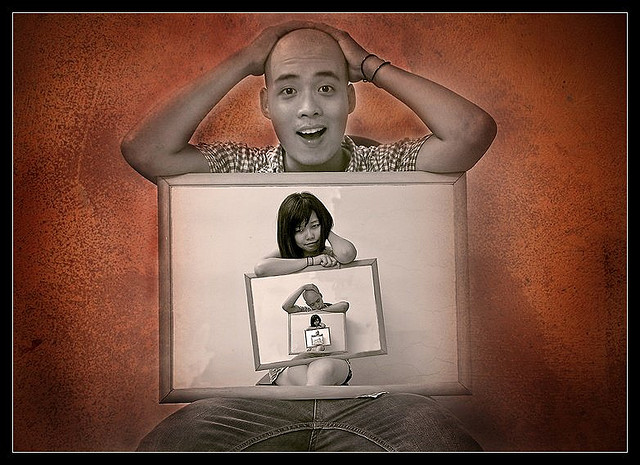
Chuck Wendig's Plan To Edit A Novel In Four Months
I wrote about Chuck's post before, but only about the first couple of paragraphs because what he wrote there blew my mind: Editing is writing.
If you're looking at the screen blankly thinking, "Yeah. So?" then I applaud you. That held me back for a long time.
Caveat
Of course writing new words matters, but here's how I look at it. It's not new words per day that matters, it's new words per year. I can't sell three novels and miscellaneous short stories a year if I don't write 250,000 or so words in a year.
Write and edit.
Okay. Enough said. Moving on.
Writing vs Storytelling
These are the twin pillars of writing and, yes, the analogy of pillars breaks down because unlike the Grecian pillars I imagined when I wrote the above, writing and storytelling intermingle like rum on a Bundt cake.
As Chuck Wendig mentions, writing is "technical and objective" while storytelling is "far more subjective and instinct-driven".
For instance, I had a friend in my university days who--though he couldn't write an essay to save his life--could spin funny, absurd and altogether spellbinding tales. I worried about him, though, since the majority of his stories began with, "I was out at the bar the other night". It was his version of "Once upon a time".
My storytelling friend had an innate understanding, in intuitive grasp, of the elements of story. But, since we're writers, that's only half the picture.
Writing problems
Here's what I mean by writing problems: an unreflective disregard of grammar. For instance, comma confusion, talking about the barber's convention rather than the barbers' convention. And so on.
Of course many of the greats spurned grammatical conventions regularly, but they knew them. Either explicitly or, like storytelling for my friend, it was in their bones. Their prose satisfied the ultimate grammatical directive: Be clear.
Garbled language can't help anyone express a thought. For instance, using "bakers" when you mean "baker's"--a mistake I know I've made a time or three (thank all-things-good for copy editors!)--never makes prose clearer.
Storytelling problems
Storytelling, on the other hand, is more about the flow and structure of a story. For instance, when you read about Blake Snyder's Beat Sheet or Michael Hauge's Screenplay Structure, or--something I've been writing about lately--the stages of the monomyth, we're in the realm of storytelling.
Get The Story First Then Write It
Before you pick up your pen to write a novel it helps (the writing will be faster and less angst-fraught) to have a good grasp of the story.
Think of it this way. When I open my mouth to say something I like to know, beforehand, exactly what I want to say. When I don't, things can get messy, and I suspect that's not just true for me.
Draft Zero
But life's not always like that. I find that, just like I'm not always 100% sure exactly what I'm going to say, I don't always know what story I want to write when I sit down to write it. (For instance, someone once asked me whether I thought it was a good idea for writers to keep a pet. It was an interesting question but one I don't have a settled view on; still, it was interesting to discuss it. To, as we sometimes say, "hash it out".)
Perhaps I'll have an idea, an image or two, a premise. Perhaps I'll have a vague idea how it all ends. Then I'll put my butt in a chair and write.
The first draft will probably be only 2/3 or even 1/2 the length of the book, but that's okay. These are my initial ideas. They're still growing, changing. The story is evolving.
After that initial draft (or, as Kim Neville says, draft zero) I'll have a much better idea of what my story is. I'll know how it begins (although this will probably change over the next few drafts), I'll know how it ends (this also will likely change but not as radically) as well as all the story points in between.
Detailed outline
Now I can sit down again, rip the whole thing apart, and write (hopefully) a good, clean, draft. One that, when finished, I can send out to my beta readers.
My first draft (or zero draft) is all about grabbing the story out of thin air--birthing the ideas on paper (and WOW, is that messy).
Then I do a good, detailed, outline of what I have, rearranging things as needed. Sometimes I end up scrapping much of the first/zero draft, but that's okay. It's main purpose is to birth the story.
The next draft
The second draft is more about writing. Now I know, more-or-less, what the story is. Sure things can still change, but not as much. Now I know exactly where I'm headed and how I'm going to get there. I've got my roadmap.
Before I send my baby out to my beta readers I give her a bath, dress her up and try to teach her some manners. That means checking the spelling, the grammar and reading my manuscript aloud.
Chuck Wendig's post is chalked full of great advise, I heartily recommend it. One of the best things about it are all the links he shares to his previous posts on editing.
Chuck Wendig's Editing Plan
This is the thing I've been meaning to get to, that the build up was really for. Chuck's handy-dandy editing plan. (cue trumpets)
You have just finished the first draft of your novel; perhaps you followed Chuck Wendig's plan for how to write a novel in a year. Here's what you do:
1. Edit 5 days a week.
2. For each of those 5 days, edit 5 pages.
That's it. You can do more than that. Chances are you'll have to junk parts of it and re-write others but the goal is to edit 5 pages a day.
Chuck estimates that, if you hold to this plan, it will take 3 to 4 months to edit an 80,000 word manuscript.
All together, this writing-editing plan will get you a finished novel in about a year and a half. If you stick to it!
Not bad. Not bad at all.
What do you think of Chuck Wendig's plan for completing a novel in a year and a half? Would you try this?
Other links you might like:
- Chuck Wendig's Flash Fiction Challenge: Choose Your Random Sentence- Stephen King Talks About Doctor Sleep, Winnebagos & A Movie Prequel To The Shining
- Handy Guides To Avoiding Mistakes In Grammar
- Writing Resources
Photo credit: "Home Base" by flossyflotsam under Creative Commons Attribution 2.0.











